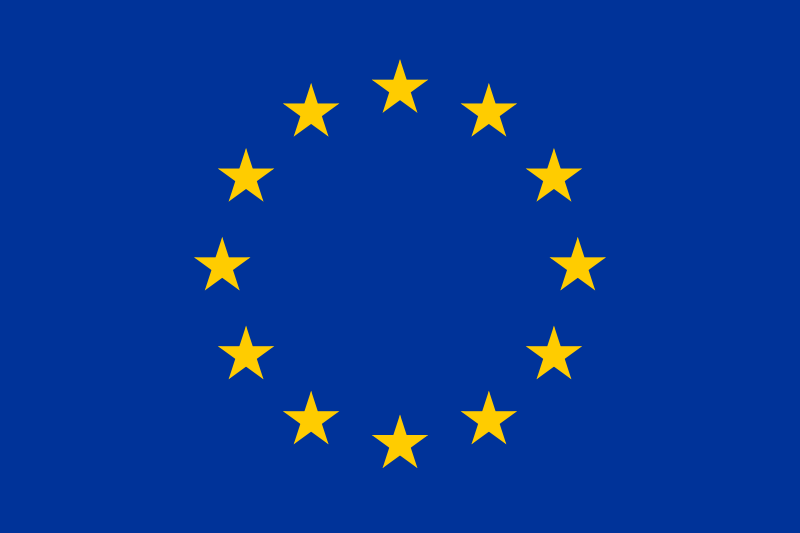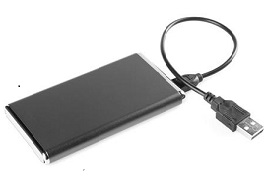We use cookies to personalize content and advertisements, to offer social media functions and to analyze access to our website.
You can revoke the given consent at any time. You can find further information in our Privacy Policy.
Jan 2015
On 15, Jan 2015 | In Copyright Levies, News @en | By Alisa Maier
 While some countries around the world have created or expanded on their existing copyright levy systems, another European country has abolished its system as of January 1, 2015: Finland repealed the legal basis of the copyright levies on blank media & recording devices. Instead, the authors will be compensated via a fund paid out of the state budget. After the Finnish levy tariffs have remained unchanged for the last two years, the parliament voted in December to replace the Copyright Levy system by a government fund. From now on, no copyright levies should be paid anymore in Finland. In 2012 the Spanish Government decided to abolish its copyright levy system, establishing and replacing it by a different one, comparable to the Norwegian system, where levies are calculated into the state budget. In Estonia, a similar system is now in the planning phase.
Basically, device- and media-based copyright levy systems are a matter of fervent controversies in all countries in which they are implemented. Nevertheless, their abolishment can be considered critical: The question of (the estimated) harm for right holders caused by private copying remains and, with it, the question of its compensation. A state budget being nothing but tax revenue, every author would rely on government aid. In fact, the harm is to be taken into account and, in the absence of a copyright levy system, he will simply be financed from other sources. The authorities will raise their claims elsewhere. Does it have anything to do with the fact that the Spanish authority tried to claim excessive fees for licensing recently? It seems as if the controversy just shifted somewhere else.
While some countries around the world have created or expanded on their existing copyright levy systems, another European country has abolished its system as of January 1, 2015: Finland repealed the legal basis of the copyright levies on blank media & recording devices. Instead, the authors will be compensated via a fund paid out of the state budget. After the Finnish levy tariffs have remained unchanged for the last two years, the parliament voted in December to replace the Copyright Levy system by a government fund. From now on, no copyright levies should be paid anymore in Finland. In 2012 the Spanish Government decided to abolish its copyright levy system, establishing and replacing it by a different one, comparable to the Norwegian system, where levies are calculated into the state budget. In Estonia, a similar system is now in the planning phase.
Basically, device- and media-based copyright levy systems are a matter of fervent controversies in all countries in which they are implemented. Nevertheless, their abolishment can be considered critical: The question of (the estimated) harm for right holders caused by private copying remains and, with it, the question of its compensation. A state budget being nothing but tax revenue, every author would rely on government aid. In fact, the harm is to be taken into account and, in the absence of a copyright levy system, he will simply be financed from other sources. The authorities will raise their claims elsewhere. Does it have anything to do with the fact that the Spanish authority tried to claim excessive fees for licensing recently? It seems as if the controversy just shifted somewhere else.
Dec 2014
 Following the new WEEE Regulations in UK, beginning with January 1, 2016, any electrical and electronic equipment which can be used by both households as well as business users (‘dual use’) has to be classified as household equipment (B2C).
For producers whose electrical and electronic equipment is re-classified as B2C this means:
• Producers will have to provide the sales data in accordance with the new classifications beginning with January 1, 2015. This is required in order to calculate the obligations for 2016.
• Since the invoicing for the volumes put on the market in 2015 takes place in 2016, producers might have to face an additional B2C financial obligation up from January 2016.
• Producers need to change registration with the Environment Agency. This has to be done prior to the data submission for the first quarter of 2015.
Following the new WEEE Regulations in UK, beginning with January 1, 2016, any electrical and electronic equipment which can be used by both households as well as business users (‘dual use’) has to be classified as household equipment (B2C).
For producers whose electrical and electronic equipment is re-classified as B2C this means:
• Producers will have to provide the sales data in accordance with the new classifications beginning with January 1, 2015. This is required in order to calculate the obligations for 2016.
• Since the invoicing for the volumes put on the market in 2015 takes place in 2016, producers might have to face an additional B2C financial obligation up from January 2016.
• Producers need to change registration with the Environment Agency. This has to be done prior to the data submission for the first quarter of 2015.
Dec 2014
 Today, six new SVHCs have been added to the REACH Candidate List by ECHA; and one existing entry has been updated.
Cadmium fluoride and cadmium sulphate are added to the Candidate List as being “Carcinogenic”, “Mutagenic”, “Toxic for reproduction” and are also identified as being of “Equivalent level of concern based on probable serious effects to human health” (specifically due to the effects on kidney and bone).
Two benzotriazole substances (UV-320 and UV-328) are identified as being “persistent bioaccumulative and toxic and very persistent and very bioaccumulative (PBT/vPvB)”.
Two further substances, DOTE and the reaction mass of DOTE and MOTE are identified as being “Toxic for reproduction”.
The Member State Committee also unanimously agreed that bis(2-ethylhexyl) phthalate (DEHP) meets the criteria for identification as an SVHC under Article 57(f) due to its endocrine disrupting properties causing probable serious effects to the environment. As DEHP is already included in the Candidate List based on its toxic for reproduction properties, this entry will be updated to address the additional reason for inclusion.
As DEHP is already listed in the Authorisation List (Annex XIV), companies that were initially exempt from the authorisation requirement may, in the future, be subject to authorisation. However, before this could happen, the European Commission would need to amend the corresponding entry for DEHP in the Authorisation List.
Today, six new SVHCs have been added to the REACH Candidate List by ECHA; and one existing entry has been updated.
Cadmium fluoride and cadmium sulphate are added to the Candidate List as being “Carcinogenic”, “Mutagenic”, “Toxic for reproduction” and are also identified as being of “Equivalent level of concern based on probable serious effects to human health” (specifically due to the effects on kidney and bone).
Two benzotriazole substances (UV-320 and UV-328) are identified as being “persistent bioaccumulative and toxic and very persistent and very bioaccumulative (PBT/vPvB)”.
Two further substances, DOTE and the reaction mass of DOTE and MOTE are identified as being “Toxic for reproduction”.
The Member State Committee also unanimously agreed that bis(2-ethylhexyl) phthalate (DEHP) meets the criteria for identification as an SVHC under Article 57(f) due to its endocrine disrupting properties causing probable serious effects to the environment. As DEHP is already included in the Candidate List based on its toxic for reproduction properties, this entry will be updated to address the additional reason for inclusion.
As DEHP is already listed in the Authorisation List (Annex XIV), companies that were initially exempt from the authorisation requirement may, in the future, be subject to authorisation. However, before this could happen, the European Commission would need to amend the corresponding entry for DEHP in the Authorisation List.
Dec 2014
On 08, Dec 2014 | In Copyright Levies, News @en | By Alisa Maier
Nov 2014
On 24, Nov 2014 | In Copyright Levies, News @en | By Alisa Maier
 Copyright levy systems are definitely not solely a European matter. Many other countries worldwide have implemented very similar systems which must be adapted from time to time to the technical and social developments. An example for important and recent changes in Northern African countries are Tunisia, Morocco and Algeria:
• Algeria thoroughly revised the scope of levied products, amended the tariffs, changed some methods of calculating the levy, i.e. for Mobile Phones, and finally published the new list in June 2014. The scope of levied products has been substantially expanded, now covering Gaming Consoles, Tablets, Memory Cards and USB keys with larger capacities. In addition, product definitions were changed for devices such as MP3/4 players and TVs.
• Morocco published an amendment to the copyright law in June 2014 which deals specifically with the compensation for private copying. The amendment furthermore defines the responsibilities of local producers and importers of audio and audiovisual equipment. A committee within the Moroccan collecting society has been appointed to issue a list of products that will be levied. This new list is already prepared and is expected to be published within the new Financial Law of the year 2015.
• Tunisia has a remuneration system in place since 2011, with the same functions as the European Copyright Levy systems, however under a different name: Promote Creation. The levies are integrated in the customs system, and the list of levied products is currently under revision.
Copyright levy systems are definitely not solely a European matter. Many other countries worldwide have implemented very similar systems which must be adapted from time to time to the technical and social developments. An example for important and recent changes in Northern African countries are Tunisia, Morocco and Algeria:
• Algeria thoroughly revised the scope of levied products, amended the tariffs, changed some methods of calculating the levy, i.e. for Mobile Phones, and finally published the new list in June 2014. The scope of levied products has been substantially expanded, now covering Gaming Consoles, Tablets, Memory Cards and USB keys with larger capacities. In addition, product definitions were changed for devices such as MP3/4 players and TVs.
• Morocco published an amendment to the copyright law in June 2014 which deals specifically with the compensation for private copying. The amendment furthermore defines the responsibilities of local producers and importers of audio and audiovisual equipment. A committee within the Moroccan collecting society has been appointed to issue a list of products that will be levied. This new list is already prepared and is expected to be published within the new Financial Law of the year 2015.
• Tunisia has a remuneration system in place since 2011, with the same functions as the European Copyright Levy systems, however under a different name: Promote Creation. The levies are integrated in the customs system, and the list of levied products is currently under revision.
Nov 2014
On 14, Nov 2014 | In News @en | By Alisa Maier
 French WEEE take-back scheme Ecologic, has acquired two new partners: RAEcycle, one of the two largest take-back and recycling schemes in Italy, and the WEEE Scheme of Veolia UK, one of the leading compliance schemes in the UK and part of the globally acting Veolia Group.
“With RAEcycle and the WEEE Scheme of Veolia UK on board, we are now able to handle all major and several smaller countries across Europe. This is a substantial progress for all of our take-back obligated clients”, said Meike Ruoff, Managing Director of WEEElogic.
For WEEElogic, the acquisition of two new partners is another step in completing its setup and extending its network across Europe. WEEElogic provides simple take-back solution for obligated parties. 1cc is able to add, due to its longstanding experience, consulting and management expertise on waste and further environmental legislations.
www.weeelogic.com
French WEEE take-back scheme Ecologic, has acquired two new partners: RAEcycle, one of the two largest take-back and recycling schemes in Italy, and the WEEE Scheme of Veolia UK, one of the leading compliance schemes in the UK and part of the globally acting Veolia Group.
“With RAEcycle and the WEEE Scheme of Veolia UK on board, we are now able to handle all major and several smaller countries across Europe. This is a substantial progress for all of our take-back obligated clients”, said Meike Ruoff, Managing Director of WEEElogic.
For WEEElogic, the acquisition of two new partners is another step in completing its setup and extending its network across Europe. WEEElogic provides simple take-back solution for obligated parties. 1cc is able to add, due to its longstanding experience, consulting and management expertise on waste and further environmental legislations.
www.weeelogic.com
Nov 2014
On 06, Nov 2014 | In Events | By Alisa Maier
Nov 2014
On 04, Nov 2014 | In Copyright Levies, News @en | By Alisa Maier
 The Spanish Parliament finally approved several amendments to the Spanish Intellectual Property Law on October 30, 2014. The transitional system of copyright compensation to be paid out of the State Budget is maintained – for the time being.
According to the Government, the new amendments are meant to be a first step towards an overall revision of the current Intellectual Property Law, which will only be implemented in a European context. Apart from some defined exceptions, the current amendments will enter into force on 1 January 2015.
Key aspects of the amendments:
• Revision of the system of private copying with transitional character– State Budget System is maintained; for a revision of the private copying system the EU-Community regulation for harmonization is awaited
• Effective supervision instruments and mechanisms of the management bodies of the intellectual property rights (collecting societies); ensuring greater transparency and efficiency in the operation
• Improvement of the intellectual property protection in the internet (protection against infringements in the digital environment) – Google Tax
The Spanish Parliament finally approved several amendments to the Spanish Intellectual Property Law on October 30, 2014. The transitional system of copyright compensation to be paid out of the State Budget is maintained – for the time being.
According to the Government, the new amendments are meant to be a first step towards an overall revision of the current Intellectual Property Law, which will only be implemented in a European context. Apart from some defined exceptions, the current amendments will enter into force on 1 January 2015.
Key aspects of the amendments:
• Revision of the system of private copying with transitional character– State Budget System is maintained; for a revision of the private copying system the EU-Community regulation for harmonization is awaited
• Effective supervision instruments and mechanisms of the management bodies of the intellectual property rights (collecting societies); ensuring greater transparency and efficiency in the operation
• Improvement of the intellectual property protection in the internet (protection against infringements in the digital environment) – Google Tax
Oct 2014
 You are out and your mobile phone or tablet doesn´t work anymore, because the battery is empty and needs to be recharged? In this situation, a so-called power bank can be a good solution. A power bank is an external battery that can recharge a mobile phone or tablet using USB interface.
The power bank itself can be recharged directly by power adapter at a socket or via USB interface of a laptop. At first sight, power banks seem to be a rechargeable batteries. But due to their functionalities and technical specifications they might be classified as electric device and therefore could fall in the scope of the German ElektroG (WEEE Regulations). That means comprehensive requirements for producers and distributors of power banks.
1cc supports producers and distributors of electrical and electronic products such as power banks in clarifying their obligations under the German ElektroG (WEEE Regulations) and BattG (Battery Act). For more information, please contact us at compliance@1cc-consulting.com.
You are out and your mobile phone or tablet doesn´t work anymore, because the battery is empty and needs to be recharged? In this situation, a so-called power bank can be a good solution. A power bank is an external battery that can recharge a mobile phone or tablet using USB interface.
The power bank itself can be recharged directly by power adapter at a socket or via USB interface of a laptop. At first sight, power banks seem to be a rechargeable batteries. But due to their functionalities and technical specifications they might be classified as electric device and therefore could fall in the scope of the German ElektroG (WEEE Regulations). That means comprehensive requirements for producers and distributors of power banks.
1cc supports producers and distributors of electrical and electronic products such as power banks in clarifying their obligations under the German ElektroG (WEEE Regulations) and BattG (Battery Act). For more information, please contact us at compliance@1cc-consulting.com.
Oct 2014
On 09, Oct 2014 | In Events | By Alisa Maier
 With presentations about topics as the WEEE Recast or energy efficiency requirements of IT-products, 1cc will be present at Care Innvoation 2014 from November 17 to 20, 2014 in Vienna. Care Innovation is a leading conference for recycling and development of eco-efficient electronic products.
1cc CEO Michael Krug will inform about upcoming energy efficiency requirements in Latin American Countries as a challenge for producers of IT equipment. Besides, 1cc consultant Meike Ruoff will give an overview about the status of national implementation of the EU WEEE Recast and its impact on producers and distributors across Europe. Her colleague Johanna Terry will discuss if the complexity of regulations relevant for returns of used or defective products is a barrier to waste hierarchy. And Romain Letenneur of WEEElogic will introduce how a private European initiative enhances simplification and harmonization for producers.
Date: November 19, 2014
Time: 2:00 to 6:30 pm
Place: Schoenbrunn Palace Conference Centre, Vienna
Room: 8 – Sophie
Speakers: Michael Krug, Meike Ruoff, Johanna Terry, 1cc GmbH, and Romain Letenneur, WEEElogic GmbH
Further information:
http://www.care-electronics.net/CI2014/
With presentations about topics as the WEEE Recast or energy efficiency requirements of IT-products, 1cc will be present at Care Innvoation 2014 from November 17 to 20, 2014 in Vienna. Care Innovation is a leading conference for recycling and development of eco-efficient electronic products.
1cc CEO Michael Krug will inform about upcoming energy efficiency requirements in Latin American Countries as a challenge for producers of IT equipment. Besides, 1cc consultant Meike Ruoff will give an overview about the status of national implementation of the EU WEEE Recast and its impact on producers and distributors across Europe. Her colleague Johanna Terry will discuss if the complexity of regulations relevant for returns of used or defective products is a barrier to waste hierarchy. And Romain Letenneur of WEEElogic will introduce how a private European initiative enhances simplification and harmonization for producers.
Date: November 19, 2014
Time: 2:00 to 6:30 pm
Place: Schoenbrunn Palace Conference Centre, Vienna
Room: 8 – Sophie
Speakers: Michael Krug, Meike Ruoff, Johanna Terry, 1cc GmbH, and Romain Letenneur, WEEElogic GmbH
Further information:
http://www.care-electronics.net/CI2014/